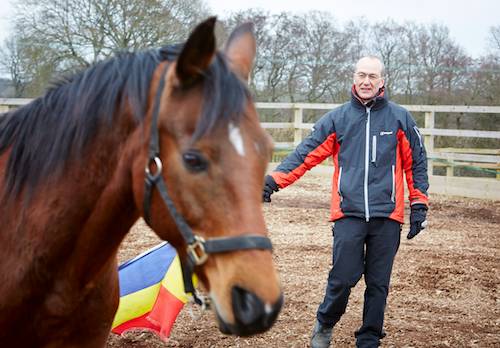The best managers think outside the box and one way to do just that is by embarking on an equine guided leadership training course. Whilst other company leaders are sitting in a stuffy conference room desperately trying to stay awake whilst an expert drones on, you could be out in the fresh air enjoying working with nature’s wisest and most majestic creatures.
Equine guided leadership offers so much more than a conventional training course and is a ‘hands on’ way of learning that will stay with you for years to come, unlike the reams of notes you might try to make at a dull conference or training session.

The Six Skills A Horse Can Teach You
There is an awful lot to be learned from horses, especially within the context of work. Just like the average workplace, horses run in herds and establish a hierarchy, but it’s how they do that which can inform a manager’s style. Observing horses can help you learn a lot about the effectiveness of your own behaviour.
1. When watching horses you could be forgiven for thinking that the noisiest or most aggressive horse is the leader, but in actual fact herd leaders are able to establish their authority with a mere nod of the head. They are able to show others that they rule the roost without the need for aggression or intimidation.
2. Horses have a herd hierarchy. Each horse is assigned a role within the herd and if they don’t fulfil their purpose they will be reprimanded. Although horses don’t use language, each member of the herd understands their role and what is expected of them.
3. Although there is a hierarchy amongst horses, the leading horses will eat first but if enough food and drink is available it is always shared equally. In a work situation this equates to ensuring your employees are properly rewarded for the work they do.
4. In order to work with a horse it’s necessary to establish trust and assert your authority through your body language. Horses won’t respond to persuasion or yelling so you have to rely on the way you carry yourself and your own sense of confidence to succeed.
5. The fast paced world of business can often leave workers overwhelmed and many managers have a tendency to keep piling on the pressure. When you work with a horse to complete a tasks it’s essential to have patience and as with most things, you’ll find the more time you devote to getting it right, the better the final result will be.
6. When you’re not used to being around horses they can seem hugely intimidating and actually being placed in charge of one of these great beasts can be pretty scary – a bit like taking over the reins of a company or embarking on a new project. When you can make a horse feel secure and confident under your leadership, your own confidence will develop too and you’ll feel more able to face the daily challenges of your career.